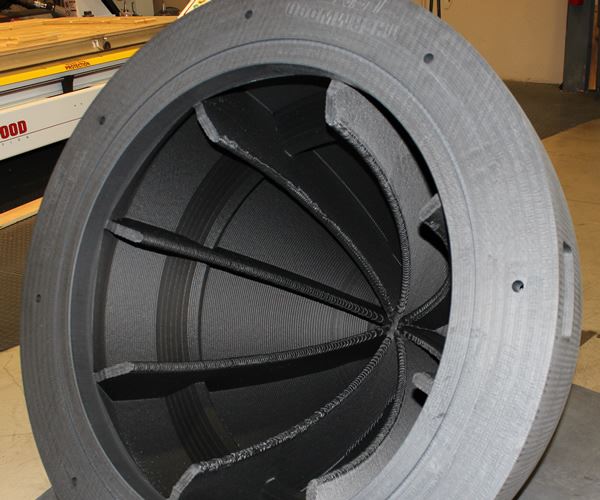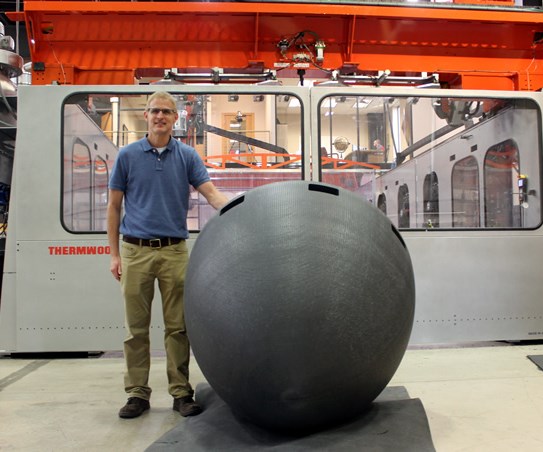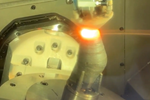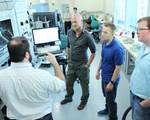Thermwood and U.S. Navy Complete Validation for AM Marine Program
The validation program centered on printing an unclassified scale nose of a submarine using Thermwood’s Large Scale Additive Manufacturing (LSAM) system.
Thermwood Corp. has entered into a collaborative program with the Naval Surface Warfare Center, Carderock Division to explore the use of additive manufacturing technology in developing marine models for ship and ship systems testing.
The initial validation program was centered on printing an unclassified scale nose of a submarine using Thermwood’s Large Scale Additive Manufacturing (LSAM) system, an industrial additive manufacturing system intended for the production of large-scale components. The part was printed using 20 percent carbon fiber-filled ABS in 11 hours and 45 minutes using traditional horizontal layer printing and a 40-mm melt core. Final trim required 5 hours. Both printing and trimming were completed on the same machine, using Thermwood’s 10 × 20-ft. LSAM at its demonstration lab in Southern Indiana.
Because of layer cooling requirements, the print rate for this part was less than half of the maximum rate the machine is capable of, according to Thermwood. The company expects that, moving forward, the program will include the printing of additional components using both horizontal and vertical layer printing.
This story originally appeared on compositesworld.com.
Related Content
-
500-Pound Replacement Part 3D Printed by Robot: The Cool Parts Show #50
Our biggest metal cool part so far: Wire arc additive manufacturing delivers a replacement (and upgrade) for a critical bearing housing on a large piece of industrial machinery.
-
World’s Largest Metal 3D Printer Seen at Ingersoll Grand Opening Event
Maker of large additive and subtractive machines adds capacity in Rockford, Illinois.
-
3D Printing Brings Sustainability, Accessibility to Glass Manufacturing
Australian startup Maple Glass Printing has developed a process for extruding glass into artwork, lab implements and architectural elements. Along the way, the company has also found more efficient ways of recycling this material.

.png;width=70;height=70;mode=crop)












